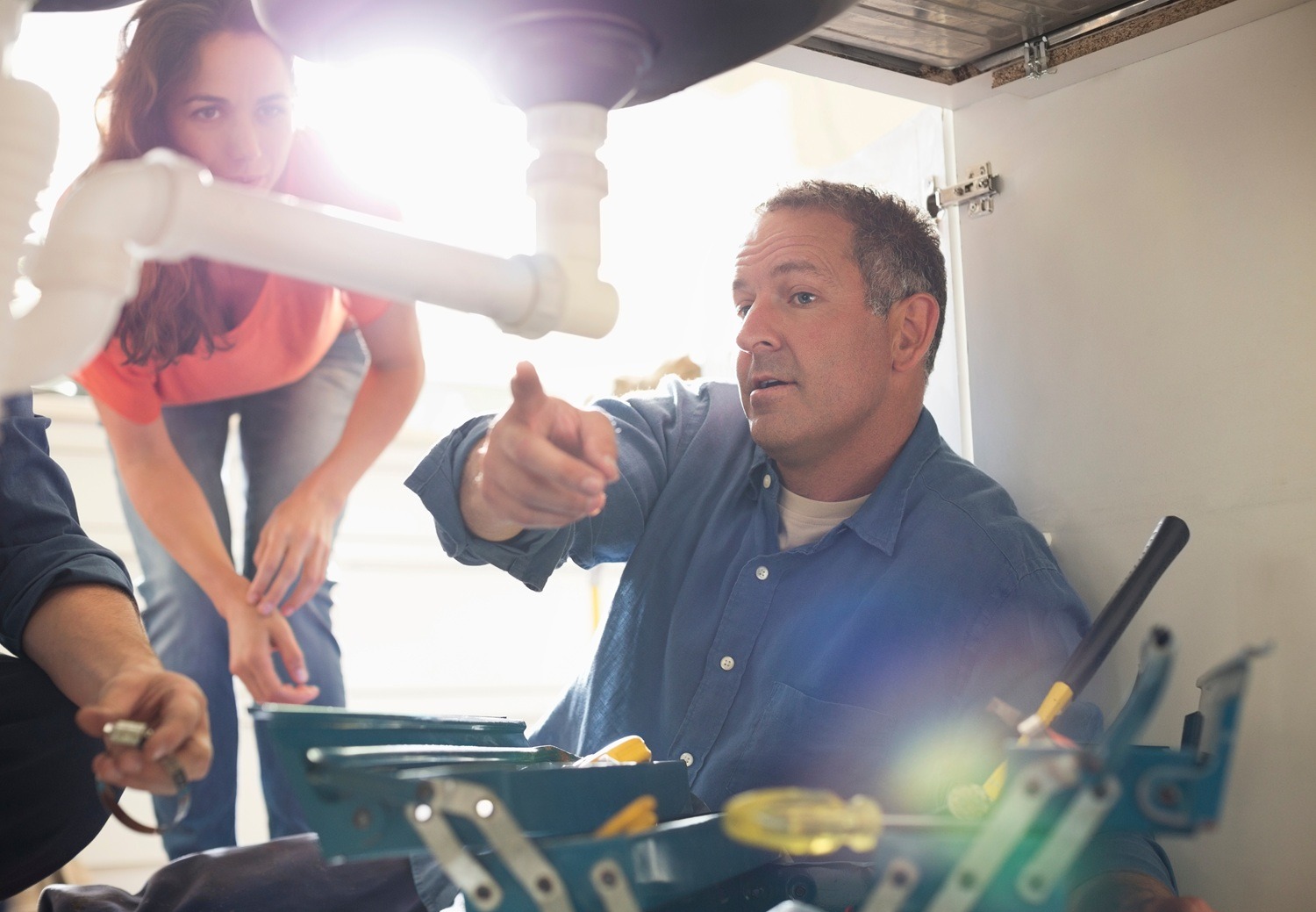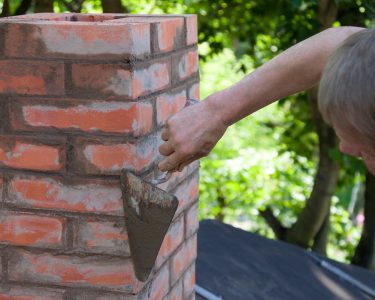The Real Cost of Aging Pipes in NJ Homes
Are broken or outdated pipes draining your home and budget? Stopping that bleeding comes down to one big question: should you repair or replace your pipes? The best option for your wallet isn’t always clear. Quick patches may seem cheaper, but they can snowball into more expensive mistakes when they’re the wrong choice.
Let’s break down how to check your home’s plumbing, factors affecting costs, and how licensed plumbing contractors in NJ can help. NJ plumbers see these things day in and day out, especially in older homes where the cost to replace plumbing in older NJ homes can vary widely.
If you’re planning to update fixtures at the same time, it’s worth reviewing what’s the most expensive part of a bathroom remodel to better understand how plumbing costs fit into your overall budget.
Quick Answer: Is It Cheaper to Repair or Replace Pipes in NJ Homes?
In most NJ homes, pipe repair is cheaper for isolated leaks or newer systems, but replacement is more cost-effective when pipes are aging, corroded, or leaking repeatedly. Repairs offer short-term savings, while replacement prevents future damage and frequent maintenance. A licensed NJ plumbing contractor can determine which option truly safeguards your home’s long-term value.
Why NJ Homeowners Struggle with the Repair-or-Replace Decision
New Jersey’s housing market is brimming with homes built before 1980. Those homes often have galvanized steel or cast-iron plumbing systems, hanging on well past their intended lifespan. When these materials age, it leads to corrosion, mineral buildup, and leaks.
Local conditions don’t help. Hard water, mineral deposits, and winter freezes strain even newer pipes. Over time, the cost of small fixes adds up, and homeowners must choose between continued patchwork or full replacement.
Understanding how to make that choice avoids emergencies, improves water quality, and maintains your home’s value. Learning the signs your NJ pipes need replacement early can prevent damage and unnecessary expense later.
If you’ve noticed moisture issues or mold near plumbing fixtures, check out how humid summers affect mold testing in Essex County NJ — it’s a good reminder of how hidden leaks can create larger problems over time.
What Determines the Cost of Pipe Repair or Replacement in NJ
The price difference between repair and replacement depends on several technical and environmental factors. Knowing what influences cost helps homeowners work it into their budget and avoid surprises.
| Pipe Type | Average Lifespan | Common Problems | Replacement Considerations |
| Copper | 50+ years | Pinhole leaks, corrosion | Reliable, strong resale value |
| Galvanized Steel | 40–50 years | Rust, internal buildup | Should be replaced if original |
| PVC / PEX | 25–50 years | Cracks, fitting leaks | Modern, affordable replacement |
| Cast Iron | 50–100 years | Corrosion, cracking | Often swapped during renovations |
Older NJ homes with galvanized or cast-iron lines might look fine on the outside. But, they could be hiding rust and scaling inside. Replacing those pipes early prevents leaks, staining, and expensive water damage. The best pipe materials for New Jersey winters are usually copper or PEX. They resist freezing and last for decades even under cold conditions.
Why Pipe Location Changes the Price of Repairs
Where a leak occurs has a hand in the price. Exposed plumbing in basements or crawl spaces is easy to fix. Leaks behind drywall, under slabs, or in ceilings need cutting, patching, and restoration. Those things take more work and therefore, more money.
Because of that, replacement is a better option during renovations or when access is already open. Homeowners save money by addressing the entire section during wall exposure. Experienced plumbing contractors NJ homeowners trust often recommend combining projects to save on costs.
When calculating the cost to replace plumbing in older NJ homes, location plays a major role; especially if pipes run beneath finished flooring or through historic plaster walls. If you’re remodeling, make sure you know whether you need a permit to remodel a bathroom in NJ since major plumbing changes often require one.
How the Extent of Damage Affects Your Plumbing Costs
The bigger the problem, the more replacement makes sense. If leaks appear in many locations or the pipe surface shows visible corrosion, repairs aren’t a great idea. Each new break increases the risk of mold, water damage, and weakened supports.
A planned replacement solves everything in one fell swoop. You won’t have to call for service over and over, since you can rely on the plumbing system for decades. If you’re seeing frequent leaks or discolored water, those are classic signs your NJ pipes need replacement.
Why Permits and NJ Plumbing Codes Matter
Each municipality in New Jersey enforces its own permit fees and plumbing codes. Licensed professionals ensure your project passes inspection and meets modern safety standards.
Skipping permits or hiring unlicensed labor might seem cheaper. But, its the easy way out and can result in fines, leaks, or denied insurance claims. That’s why hiring NJ plumbing contractors with code experience saves money long-term. Knowledgeable plumbers can also explain how town-specific codes affect the cost to replace plumbing in older NJ homes; especially during kitchen upgrades. If you’re planning one, it’s smart to review common mistakes when kitchen remodeling in New Jersey before opening walls or rerouting pipes.
When Pipe Repair Makes the Most Sense for NJ Homeowners
Repairing is often the right call when there’s localized damage, the surrounding pipe is strong, and the home’s plumbing system isn’t showing widespread corrosion. It’s ideal for newer homes or properties where the plumbing was recently upgraded.
For example, if a single copper joint fails near your water heater or a PVC elbow cracks under a sink, a simple cut-and-replace repair can restore function. It’s efficient, minimally invasive, and cost-effective when the rest of the system is healthy.
Top scenarios for repair include:
- A small, contained leak or crack in one section.
- Pipes under 20 years old with no prior issues.
- Problems caused by fittings or valves rather than corrosion.
- Easy-to-access lines in basements or crawl spaces.
- Homes planning major remodeling soon. Before hiring, review questions to ask a kitchen remodeling contractor to ensure your plumber and contractor are aligned.
Benefits of repair:
- Lower upfront costs and faster completion.
- Minimal disruption to walls, floors, or landscaping.
- Great for short-term peace of mind while budgeting for upgrades.
Homeowners should always use their brains. If the same pipe leaks again within a year, that’s not bad luck. That’s a pattern of systemic failure. Many small repairs often end up costing more than a well-timed replacement.
That’s why trusted plumbing contractors in NJ often inspect the entire line after a repair. If they notice corrosion spreading, they’ll recommend upgrading the affected area. Local plumbing contractors in NJ understand that small fixes should serve as temporary solutions.
When Replacing Old Plumbing Saves You More in the Long Run
There comes a point when replacing aging plumbing is the smarter choice. Systems made from decades old materials can develop internal rust that restricts flow and discolors water. Replacement restores pressure, improves quality, and ends the cycle of constant maintenance.
Think about the long game. A homeowner who pays for many repairs each year eventually spends more than the cost of new piping. Replacing the full line provides stability, eliminates risk of hidden leaks, and ensures compliance with modern standards.
Warning signs you need replacement:
- Persistent low water pressure throughout the house.
- Brown or rusty water even after flushing lines.
- Many leaks in different areas within a short timeframe.
- Cracked, pitted, or flaking pipes visible near joints.
- Original plumbing made from outdated materials.
Advantages of a full replacement:
- Decades of reliability and reduced maintenance.
- Better water clarity, flow, and temperature consistency.
- Higher property value and stronger inspection reports.
- Fewer emergency calls during winter freeze cycles.
Replacement is also a chance to modernize. Some NJ homeowners switch to PEX for its flexibility and resistance to freezing. Others choose copper for longevity and resale appeal. Either option provides long-term cost control and peace of mind. Skilled plumbing contractors in NJ can help select the best pipe materials for New Jersey winters.
Repair vs. Replacement: Which Option Is Better for NJ Homes?
Use this table to compare both options side by side before deciding what fits your situation best.
| Criteria | Repair | Replacement |
| Upfront Cost | Lower | Higher |
| Longevity | Short-term fix | 25–50+ years |
| Best For | Newer homes, isolated leaks | Older, corroded, or failing systems |
| Disruption Level | Minimal | Moderate to major |
| Water Quality & Flow | Unchanged | Improved |
| Hidden Risk | May persist | Eliminated |
| Maintenance Frequency | Ongoing | Rare |
| Resale Impact | Neutral | Positive |
| Long-Term Cost Efficiency | Variable | Predictable savings |
While repair offers instant relief, it’s often a temporary fix. Replacement, though more expensive upfront, provides long-term savings without ambiguity.
Professional plumbing contractors in NJ use this same analysis to help families make informed choices. They compare materials, labor scope, and lifecycle costs to ensure every project aligns with your home’s age and goals.
How NJ Plumbing Contractors Help You Make the Right Decision
Deciding between repair and replacement requires more than a quick glance. Licensed NJ plumbers begin with a thorough inspection. They’ll perform pressure tests, material checks, and visual evaluation of exposed sections. This helps identify corrosion, blockages, and structural weakness.
They may also use camera technology to inspect hidden pipes and detect early signs of failure. The goal is to provide a clear picture of your plumbing system’s condition, so you can make an informed decision.
A professional inspection usually includes:
- Testing for consistent water pressure and flow.
- Checking visible joints for corrosion or scale.
- Inspecting water heaters and shutoff valves.
- Evaluating pipe material and lifespan.
- Estimating replacement vs. repair costs with precision.
Many plumbing contractors NJ residents trust also provide lifecycle estimates. They’ll show you how much you’ll spend maintaining an old system versus replacing it. This data-driven approach helps homeowners plan budgets and avoid unexpected breakdowns.
Why professional guidance matters:
- Local pros understand NJ’s soil, weather, and water conditions.
- They ensure compliance with state and municipal codes.
- They help phase replacements by priority if full upgrades aren’t workable.
- They document work for insurance and resale value.
For professional guidance or inspection scheduling, connect with trusted plumbing contractors in NJ who specialize in long-term plumbing solutions.
Key Takeaways: Smart Plumbing Decisions for New Jersey Homes
- Repair is best for newer systems or isolated damage.
- Replacement provides reliability for older, corroded, or high-risk plumbing.
- Ignoring repeated leaks can cause mold, wall damage, and higher water bills.
- Modern materials like PEX and copper deliver superior performance.
- Professional evaluation ensures you spend wisely, not repeatedly.
If you’re noticing leaks, discolored water, or pressure drops, those are clear signs your NJ pipes need replacement, not repair.
Choose the Option That Protects Your NJ Home
Every NJ home eventually reaches the point where repairs stop being worth it. When leaks become frequent or water quality declines, replacing your plumbing system protects your investment.
Before deciding, consult with licensed plumbing contractors in NJ who can assess your pipes, explain your options, and recommend the most cost-effective path forward. Trusted plumbing contractors in NJ will help you choose upgrades that improve safety, efficiency, and long-term value.





